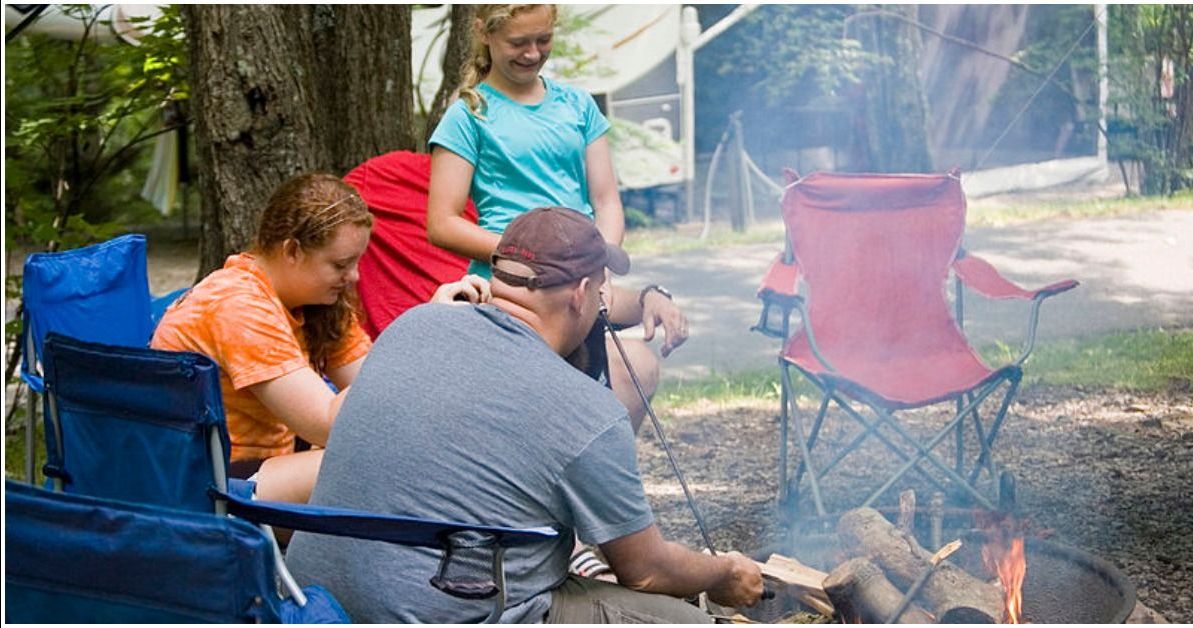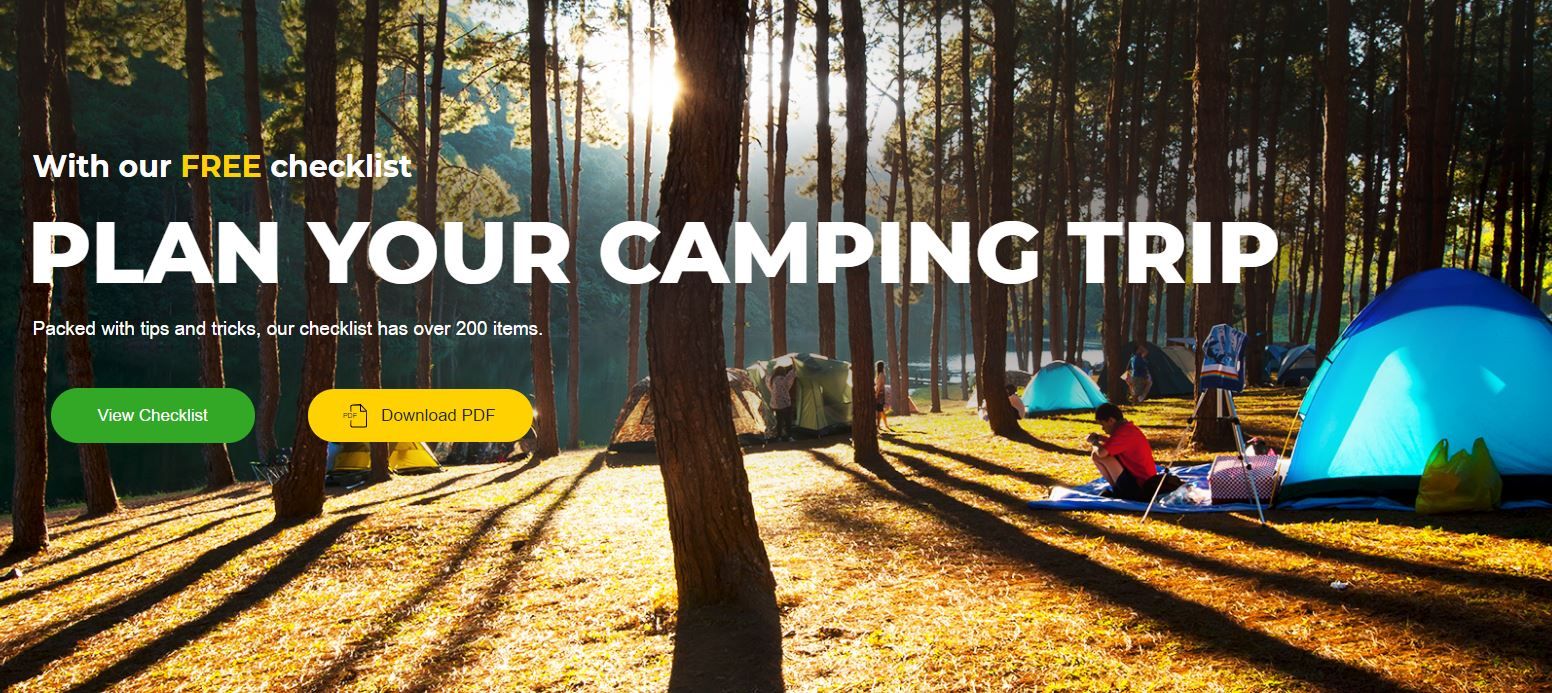Warm weather means that camping season is officially here across the country.
Whether you're planning to pack your family into the RV, or just driving down to the local campground, it pays to be prepared.
Every year, without fail, I get out in the wilderness before discovering that I've forgotten something back home.
Don't leave your house without everything on your list this year. If you find yourself missing anything and need some help before making a purchase, head on over to Gear Hungry where you'll find great reviews for all the best camping equipment on the marker. You can also access a great free and interactive checklist from Outdoor Union.
Here's a handy checklist to jog your memory:
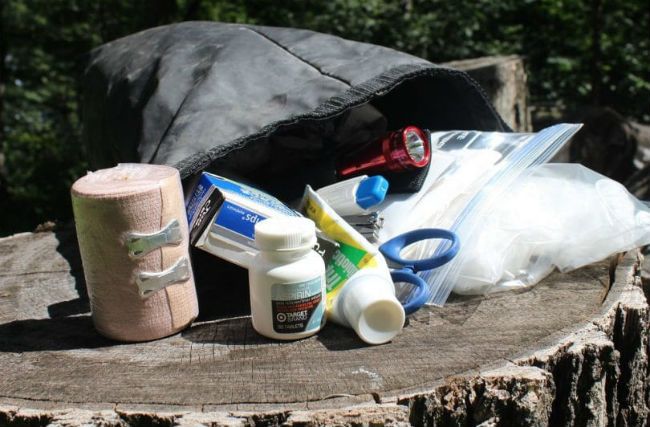
Safety and Useful Gear
- A first aid kit. You can make your own at home or buy one from the store, just make sure none of the contents are expired or need to be replaced before you pack it.
- A flashlight with extra batteries.
- Guidebooks and maps.
- A lantern. Only use battery powered lanterns inside a tent. And remember to buy fuel for a gas lantern.
- Rope. (It's useful for so many things at a camp site).
- Duct tape.
- Waterproof matches.
- Garbage bags. They're not just for storing waste, these bags are a handy way to stow dirty clothes and other things you don't need as your trip goes on.
- A broom or brush and dustpan.
- Clothespins.
- Bug repellent. (It's easy to make your own mosquito repellent.)
- Sunscreen and aloe gel for sunburns.
- A multitool.
- Binoculars.
- Diapers and wipes (if you have small children).
- Gear for your pet (if they're coming with you) including a leash, bags, treats, and a brush to keep them clean.
- Books and cards or games.

Clothing
Always pack more clothes than you think you'll need, because you'll probably be sweating or wet for most of the day.
Change into a new set of dry clothes at night to keep warm.
- Rain jacket.
- Backpack.
- Sweaters.
- Sturdy shoes or purpose-built hiking boots.
- Hat or visor.
- Bathing suit.
- Beach towel.
- Sunglasses.
- An extra towel.
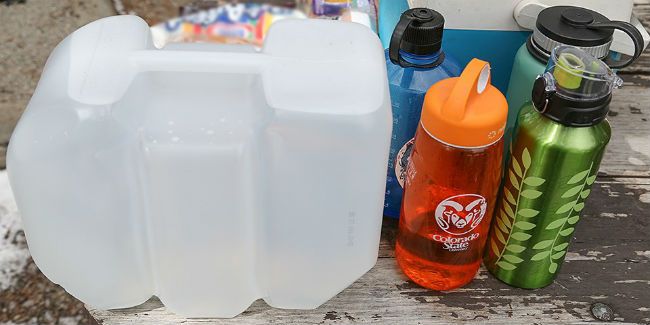
Water
Water is crucial to enjoying your camping trip. Check beforehand if there's a fresh source at your campground, and if not plan to make or bring your own supply.
You need two liters of fresh water per person, per day. Sometimes even more if the weather is hot or you're getting plenty of exercise.
- Refillable water bottles for everyone in your group.
- Water jug to fill at a fresh source. The collapsible type saves space.
- Water filter or purification tablets. These are only necessary if you're heading deep into the back country. A camp stove and pan to boil your water would also be good to bring along in that case.

Food and Cooking
Remember to keep any food you bring along secure and out of reach of animals.
Keep your food in the appropriate sealed container or cooler until you need it, and never leave food sitting out or in your backpack overnight.
Food
- Dry foods like rice or pasta, canned food, and snacks like granola bars.
- A cooler with ice for drinks and perishable food.
- Plastic bags to store food and food waste.
Cooking Supplies
- Plates and utensils. (If you use the paper and plastic kind, make sure you dispose of them properly).
- Knife and cutting board.
- Spatula or tongs for grilling.
- Cooking grate or griddle.
- Aluminium foil. Foil is great for both storing food and cooking meals over the fire.
- Can opener.
- Pot and pan. Bring along two if you have room, and make sure to wash them thoroughly between meals.
- Oven mitt or pot gripper.
- Camping stove and fuel.
- Drinking cups or mugs.
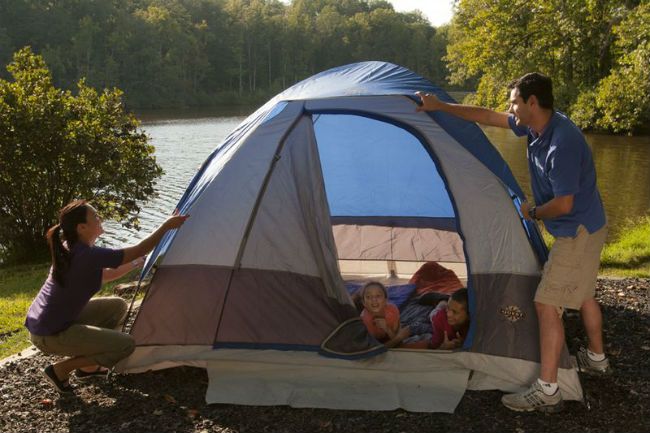
Shelter
- Tent. Set yours up at home before your trip, to make sure you still have all the pieces and that it's in good shape.
- Sleeping bag. Consider packing a sleeping pad or groundsheet to help keep you warm and dry.
- Pillowcases. Pillows are nice to have, but they take up plenty of space. You can make your own by stashing dirty clothes in a pillowcase.
- Tarp. Use clothespins or rope to set up a shelter from the rain or sun.
- Insect screen. These pop-up shelters can be nice when you're having dinner. But you can also make your own mosquito repellent at home.
- Folding chairs or camp stools.
Take note: many campers like to bring a hammock to camp, but there are strict rules about where you can tie them on trees.
Check with your campground before packing a hammock.
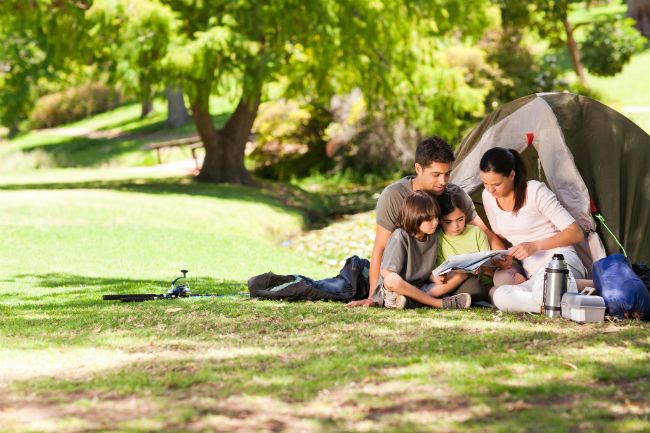
Hygiene and Cleaning
Be mindful of what you leave behind at camp. Remember the old saying, "Leave nothing but footprints, take nothing but pictures."
Cleaning
- Soap. Be sure to pack a biodegradable type, and don't drain your wastewater into any streams, ponds or lakes.
- A wash basin. Ideally, you want one with two sides, one for washing and one for rinsing.
- A scouring pad for dishes.
- Paper towels and rags or cloths.
Hygiene
- A shaving kit of daily supplies. This includes everything from your toothbrush and toothpaste, to deodorant and travel-size shampoo.
- Toilet paper and baby wipes.
- Feminine hygiene products.
- Washcloths.
- Your prescription and daily medications.
Here's another great resource:
Outdoor Union has created a free and interactive checklist of your next camping trip!
From solo hikers to families this checklist will ensure you don't forget anything at home. You can click to expand items. There are over 112 sub-items. Click to check off the things you have already packed!
Stay safe on next your camping trip, and make plenty of new memories with your family!
We have even more travel advice:
- The 7 best national parks to camp with your grandkids this summer.
- 14 ways to save money at the national parks.
- 11 vacation safety tips you must remember.
[H/T: National Parks Service, Parks Canada, Reserve America]
